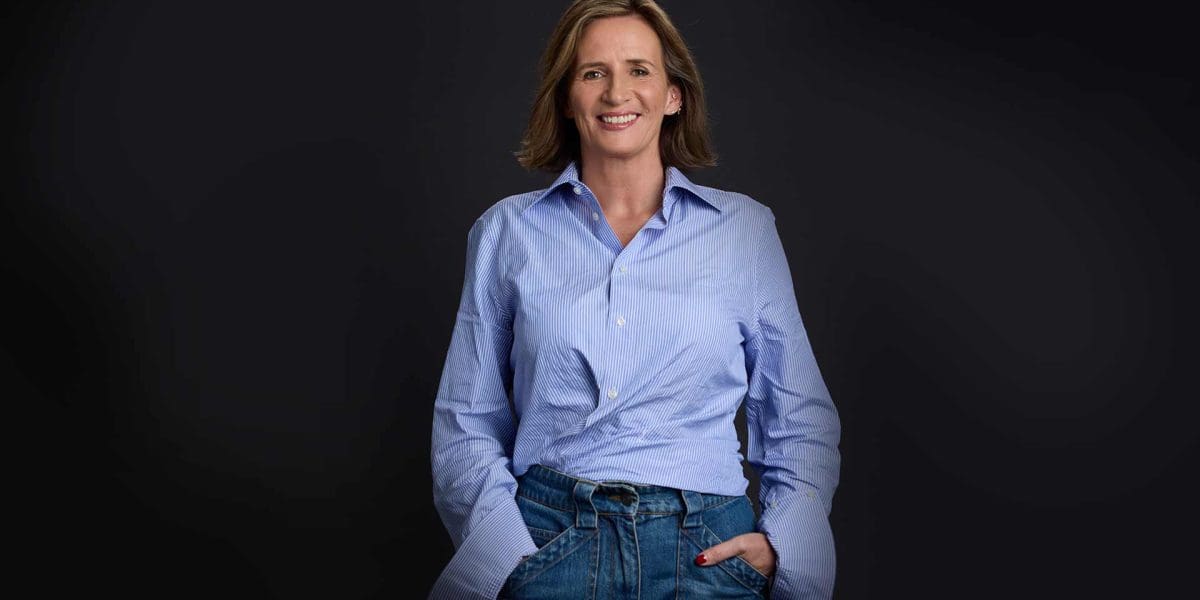Leadership Beyond Job Title
Jodie King is the Chief People Officer at One New Zealand, and leads a team responsible for the culture, capability and performance of circa 2,500 employees, while also helping steer one of the company’s boldest ambitions to become one of the most AI-enabled telcos in the world. It is a role that demands both strategic foresight and operational precision, from workforce planning and leadership succession to embedding new technology at scale.
It is also the latest chapter in a career that has spanned the public sector, global partnerships, listed companies and private equity. King has learned to adapt her leadership approach to each ownership structure without losing sight of the fundamentals: high-performance cultures built on trust, clarity, accountability and connection.
King’s career began at New Zealand Treasury, where she learned the value of trust and relationships that endure well beyond the life of a project. “I am still in contact with people who were in my teams 30 years ago,” she says. “My very first bosses when I first started out as a graduate at New Zealand Treasury, and I still am friends with some of my peers and leaders from there.”
It was also her first exposure to the public sector’s longer-term planning mindset. Decisions could be measured, consultative and deliberate. There was time to understand context and think deeply about issues. It was a foundation that would later contrast with the faster cycles and sharper performance demands of corporate life.
From there, she moved to KPMG in London, beginning a long chapter in the professional services world. Over more than fifteen years she experienced the intricacies of the global partnership model. “After I shifted across from consulting roles into HR in my business partnering and talent management role, I oversaw a team across nine countries in Europe. The remit included cross-border incentivisation, performance, partner succession planning, high potential employee programmes, coaching support, and leadership learning and development programmes.”
Her next role, as Chief People Officer at Air New Zealand, took her into a listed company with a beloved national brand. “It was a brand and a company that’s so dear to everybody’s heart, and there were always things happening. It was a 24-7 business. You were very conscious of customer expectations, PR expectations, employee expectations. The operational and customer heartbeat was constant, but the strategic, structural decisions you took were multi-year. If you’re going to enter into a new international market, purchase or lease planes, that’s not a one-year decision, it’s a multi-year decision to see through and live with.”
When she joined One New Zealand (formerly Vodafone New Zealand), it was her first experience of a private equity-backed company. “We’ve had a change in ownership structure during the time I have been with One NZ from being jointly owned by Brookfield Asset Management to solely owned by Infratil. We are currently the largest asset in Infratil’s portfolio. Infratil are strong long-term owners, they have flexibility across their portfolio to invest in the short term for long-term growth.”

Working under different ownership structures has shown her what leadership principles hold true anywhere and what must adapt. “There are some truisms wherever you go… how you create a high-performance culture, the importance of leadership, the importance of having great people. But how you apply them into different industries with different customer bases and needs, smaller scale businesses versus big ones, into national versus international companies, with different capital structures and value pools, that’s the fascinating bit.”
She is equally clear on the need to assess both what someone delivers and how they deliver it. “We rate the what and the how 50 percent equally here at One NZ, as we did at Air New Zealand. You cannot have a whole load of individualistic, horribly competitive, sharp-elbowed people that focus only on their area’s results. That’s terrible for your culture. You might get a very short term, sugar hit of results, but it’s never sustainable.”
When hiring senior leaders, she looks for traits that signal both capability and fit. “I put a lot of faith in the characteristics and the personality and the how of people rather than the what. Are they the right fit for our organisation in terms of pace and innovation, collaboration and curiosity and hunger for results? And my last test is, would I invite them around to my house and make them dinner? If the answer’s no, then why would I want to work with them?”
“The clinching factor to why I joined One NZ was interviewing with JP (Jason Paris, CEO of One NZ) over a beer and a bowl of hot chips at a local Mt Eden pub talking about our families and noticing how genuinely polite and friendly he was with our server, that told me what I needed to know about what sort of person and leader he was going to be.”
King also warns against common leadership traps. “One of my biggest bugbears is that people don’t listen deeply enough. People listen to respond or to defend their position, not to actually grow something from what’s being said. And some leaders want clones of themselves because that’s their definition of success. They have to learn that effective leaders don’t come in one cookie cutter type.”
Her own evolution as a leader has involved shifting focus from just her direct reports to her leadership span and shadow. “The more senior you get, the more it’s about the cues and signals people get from you in a five-minute interaction; in a meeting, on screen, when I visit a retail store, in the café at work or on stage. Leadership at scale is something I’ve had to think more about.”
She is candid about moments when she has fallen short. “There are days where I go home at night and I worry and rehash things in my mind, generally that’s not about operational or strategic decisions it’s always about people interactions for example I didn’t leave that person feeling good or whole or with their mana intact. I might have been too pointed in my view or told them what to do vs coached them enough. Leadership is a journey. Different situations and different teams and individuals will test your leadership approaches in different ways.”
Yet, while empathy is essential, it is not without boundaries, suggests King. “Empathy should have an outcome. You can understand someone’s circumstances and where they’re at in terms of their performance and still have expectations. You do not let people miss deadlines or turn in poor quality work just because you’re empathetic.”
Her view on resilience is equally pragmatic. “Resilience changes at different stages of your life and looks different for people. The people that are the most resilient are the ones who know themselves the best. They know what fills up their bucket and when they are depleted, they go and fill it. What fills up your bucket will be different to what fills up my emotional, physical and overall energy bucket.”
At One NZ, much of her focus now is on AI adoption, which she sees as both a strategic priority and a leadership test. “One of our strategic objectives is to be one of the most AI-enabled telcos in the world. I am spending a lot of my time helping this come to life at One NZ. One of my targets is to make sure 100 percent of our people are trained in the AI tools that will help them most in their working environment and in their future careers, and that 100 percent are using the tools well.”
She is open about the uncertainty that comes with emergent technology. “I cannot give anyone absolute certainty about the future of roles, workflows or even how Aotearoa’s education structures need to change and adapt. I do not know definitively how far this is going to play out. But at One NZ we are in the driver’s seat in terms of adoption and leveraging the benefits of AI. We are being very intentional, we are choosing the tools we deploy and they must have customer, employee and productivity benefits. We have strong governance and responsible AI guardrails, and we are doing this thoughtfully.”
She addresses job loss fears directly. “There will be job losses across many industries and companies and equally there will be a lot of new opportunities created. My role is to minimise some of those downside impacts by helping our people retrain and reskill and create that capacity for new and different roles in the organisation. I’m focused on realising the value upside from how we use the tools to create more revenue pools, gain more customers and reduce some of our cost reliance on our service partners. Ultimately, I would rather our people be so in demand for the AI skills that they have gained with us that others want to poach them for their knowledge and experience, that’s a far better problem for me to have than us be a company burying our head in the sand and not leveraging this technology.”
King’s perspective on work was reshaped when she left KPMG, UK and returned to New Zealand without a role. She spent time in rural Whanganui with her children at her parent’s bach, whitebaiting with her mother and then spent the summer in Auckland focusing on helping the family acclimatise to a very different lifestyle than urban London. “It was quite a profound time. My life could go anywhere vs me having been focused on becoming a partner in a big consulting firm. I had this opportunity to think about how I wanted to live the next phase of my life.”
That freedom gave her a lasting perspective. “I hope at my funeral people are not talking about how good I was at my job. A job should not be your entire identity. I want far more interesting and fun stories being told about me. If your work ended tomorrow and you had enough financial security to take time to make some considered choices, there should be a gazillion other things you would love to spend your time doing.”
